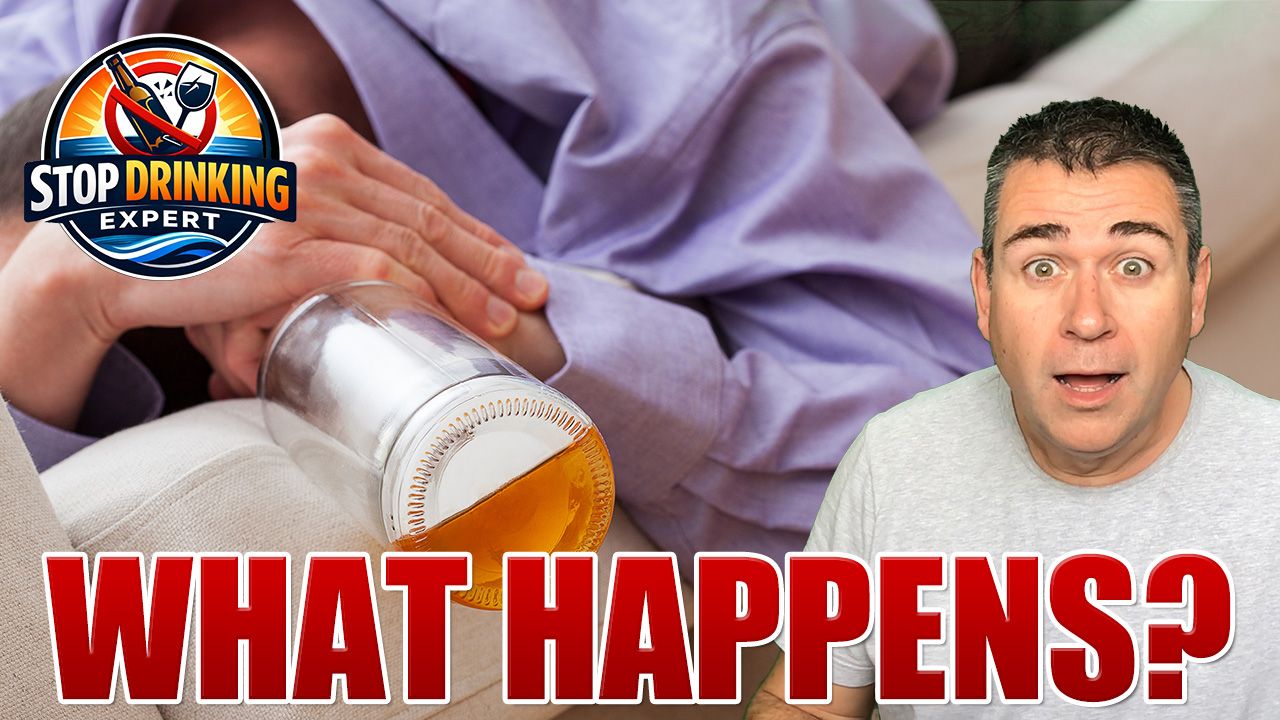I Fell Off The Wagon After 18 Months Of Sobriety... Now What Do I Do?
Mar 21, 2025RELAPSE IS NOT THE END OF THE WORLD
It is a long road to recovery from alcohol addiction and it has its ups and downs. Relapse is one of the most intimidating obstacles in this process. But it’s important to realize that experiencing a relapse doesn’t mean your path to sobriety has failed. In fact, it can be a big part of learning and emerging stronger in your recovery.” Here at Stop Drinking Expert, we know that every setback is a setup for a comeback. How Soccer Scales the WorldThe Great EscapeHow to Pick Yourself Up After a Relapse on Your Road to a Sober Life
Understanding Relapse
For that reason, relapse is a fairly common occurrence in recovery. Research indicates that 40% to 60% of people recovering from substance use disorders will experience one or more relapses before achieving sustained sobriety. Acceptance that relapse is a part of many recovery journeys can help you view it as less of a sign of failure and more of a learning curve. It’s a chance to review what sets off your drinking and revise your recovery plan as needed.
Stories of Recovery
Consider the case of one person who had nearly five years of sobriety before relapsing. They expressed their devastation but reminded not to beat themselves up over it. Instead, they concentrated on what had worked for them in the past — support groups, therapy and personal accountability — taking the relapse as a teaching moment rather than a failure.
Someone else had one slip and learned their lesson to be so assured that they stayed sober for almost 12 years. This individual stressed the need for open dialogue about personal battles and the necessity for someone going through this to not consider a relapse as nullifying previous success, instead approaching it as fuel to further the war against addiction.
Ways to Overcome a Relapse
Once you relapse it is important to make a swift transition. Here are some tips to help you recover:
Reconnect with Support: Contact your support network—friends, family or people in your recovery group. Isolation often leads to more drinking, so connection is very important.
Look For Triggers: Take the relapse as a lesson to help you think about what has caused your return to drinking. Of stress, social situations, or mind games? Identify your triggers: It’s essential for prevention.
Revisit Your Recovery Plan: It’s possible that your plan for a recovery will require a few revisions. Maybe that means more therapy, alternative coping mechanisms or even a new environment. Ability to be flexible with your route of recovery is a huge advantage.
Practice good self-care: Many slips or relapses follow a period where self-care has fallen by the wayside. Focusing on sleep, nutrition, exercise and mental health will help you build up your resistance to cravings.
The Role of Professional Help
Note: Be sure to ask for professional help when you relapse. Therapy such as Cognitive Behavioral Therapy (CBT) can provide you with tools to manage stress and negative thoughts that may be contributing to your drinking. If you yourself don't have the power to get sober, diving back into alcohol rehabilitation or alcohol addiction treatment resources may be the best way to rededicate yourself to sobriety.
Community and Support Groups
Support groups such as Stop Drinking Expert offer not only a community but a structure of how to understand and manage addiction. There, people share their stories, which are both comforting and enlightening. And those who have walked a similar path before can offer valuable insights for navigating your own.
The Power of Everyday Story Changes
Little, daily changes can lead to a large, long-lasting sobriety. I read one story about a person who started meditating every day after relapsing, as a way to cope with anxiety to stay sober. A third turned to non-alcoholic drinks when out with friends, discovering the fun of spending time with people without the pressure of drinking. These stories show that sometimes the transition to sobriety comes through small, manageable daily changes.
Looking Forward
Recovery is not linear; challenges pepper our way, but with every one, we learn something that has stuck till one day it hits you, enough is enough. If you’ve relapsed, look, you’re not the only one. Many have taken this journey and emerged stronger, more aware, and more masters of their own lives. Stop Drinking Expert offers a free quit-drinking webinar, take action if you're struggling with drinking and join our community. It’s meant to help you with the strategies, support and inspiration from people who have been where you are.
Embracing the Journey
Every sobriety story is different, with its own milestones and struggles. This journey, with all its complexities, is about realizing that progresses do not only mean moving forward but also embracing the path even when we take a step back. You just have to keep moving and learning and helping one another in this connected human life.
⚠️ Medical Disclaimer: This article is for educational purposes only and not a substitute for professional medical advice. Alcohol withdrawal can be dangerous. If you have been drinking heavily, consult a healthcare provider before stopping. If you're experiencing a medical emergency, call emergency services immediately.








